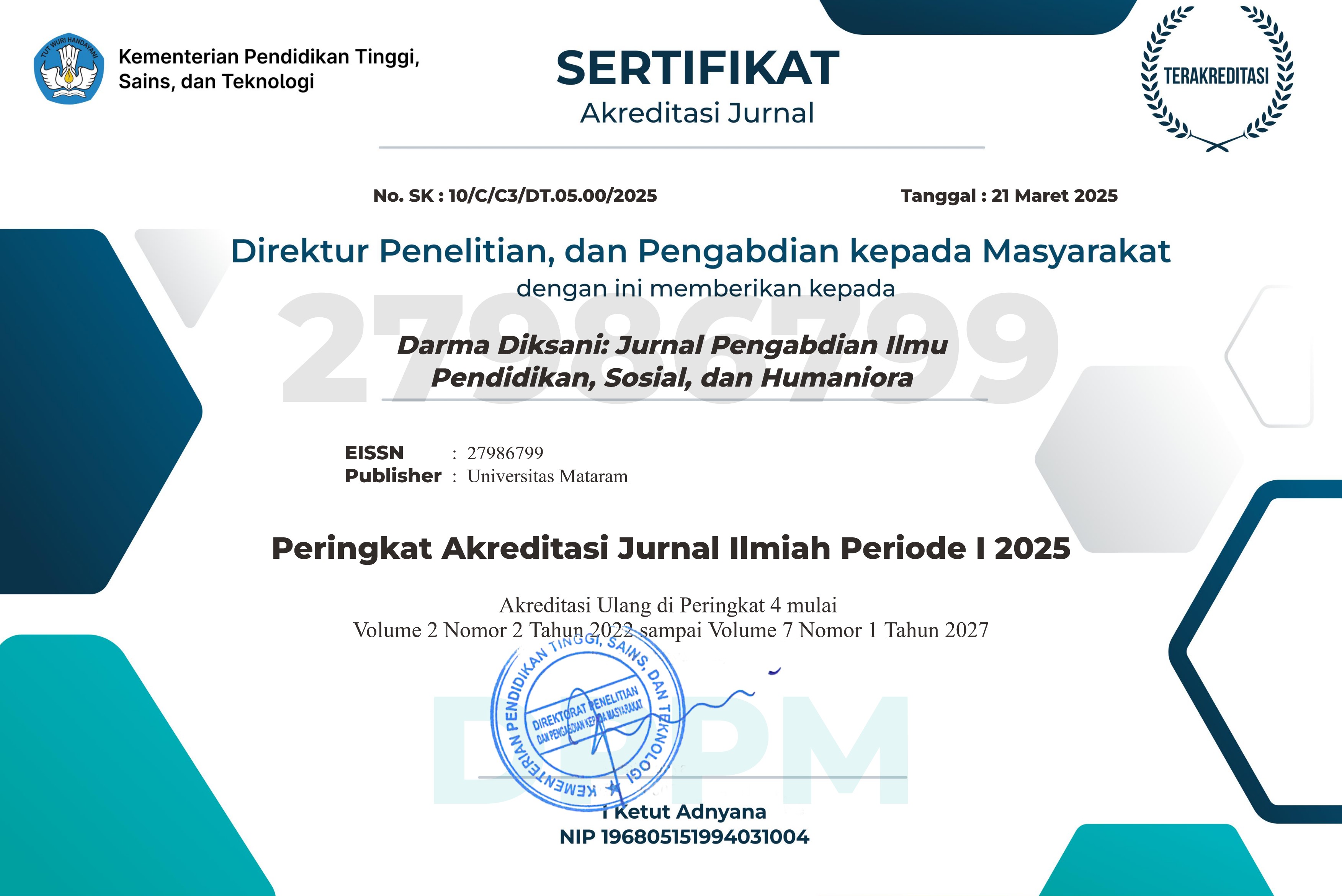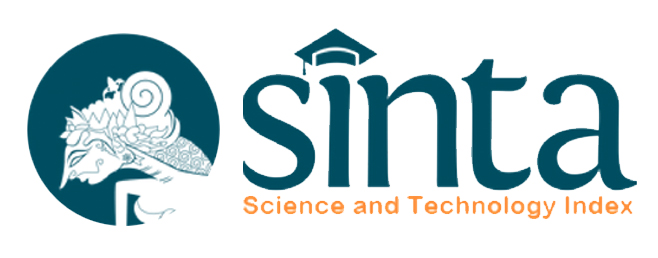Kindness-Based English Simulation for Vocational Students in Industrial Engineering
Kegiatan Simulasi Bahasa Inggris Berbasis Nilai Kebaikan untuk Siswa SMK Teknik Industri
DOI:
https://doi.org/10.29303/darmadiksani.v5i1.7251Kata Kunci:
Global industry, Kindness-based English simulation, Student engagementAbstrak
English proficiency opens access to careers in global industries. Meanwhile, the decline in moral and ethical values among students hinders the shaping of professionalism. These issues demand readiness from vocational Industrial Engineering students to face them. Hence, this service-learning program integrated kindness values such as empathy, cooperation, and respect into an English simulation. It was conducted at SMK Teknik Industri, involving 20 students in a role-play set in an industrial engineering context, preceded by a motivational session and a sentence-making game. All activities were recorded to observe the students’ engagement, which was confirmed through an interview session with 6 representatives. The results indicated a gradual increase in engagement. In the motivational session, they listened passively due to limited English comprehension. During the game, participation began to emerge despite their fear and hesitation. In the role-play session, they demonstrated increased engagement and positive emotional responses through pronunciation and expression practice. This was supported by their perceptions, as they became motivated and aware of the importance of English and ethics. Therefore, this program holds potential for further development to improve both English proficiency and character building.









